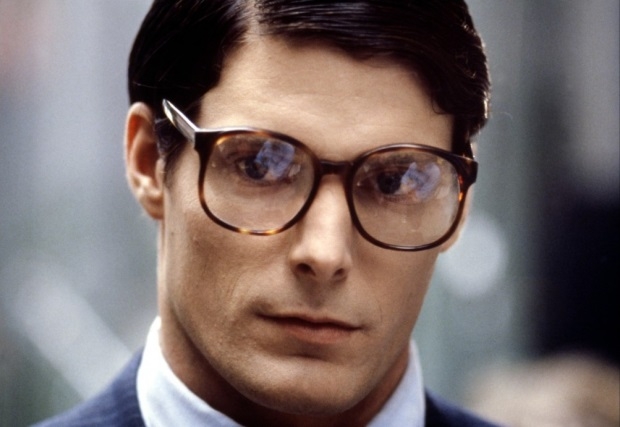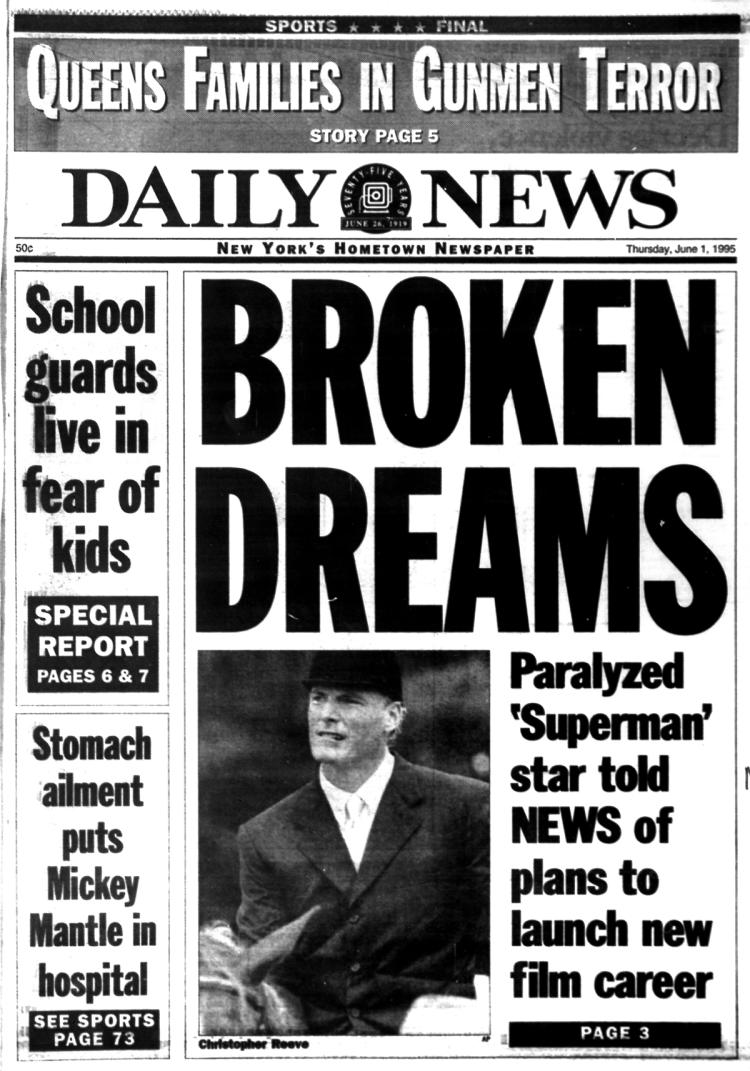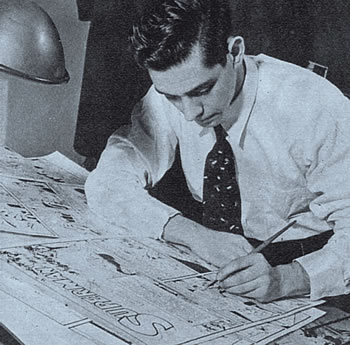
I usually don’t pay homage to actors or figures from the pop culture, but this is different, for Christopher Reeve really became the character associated with him, Superman.
He died on October 10, 2004 but he didn’t give up without a fight. His courage, strength and positive attitude should serve as an example to all of us.

Film and stage actor, director, born on September 25, 1952 in New York City, USA. He studied at Cornell University and the Juilliard School in New York, and had various stage and television roles before becoming universally known as the star of Superman and its sequels (1978, 1980, 1983, 1987). Later films include Noises Off (1992) and Morning Glory(1994).
In May 1995 Reeve became paralysed from the neck downwards and wheel-chair bound following a horse-riding accident.

He also required a respirator to assist his breathing for the rest of his life. He became very involved in campaigns supporting handicapped children and paraplegics, and founded the Christopher Reeve Paralysis Foundation in 1998 to promote research into spinal cord injuries, testifying before a Senate subcommittee in favor of federal funding for stem cell research.

Reeve continued to work after ongoing rehabilitation. He acted again in films, including a television production of Rear Window (1998) and directed two television films with health themes, In the Gloaming (1997) and The Brooke Ellison Story (2004). His autobiography Still Me appeared in 1998.

Christopher Reeve died from cardiac arrest on October 10, 2004. He was survived by his wife Dana and son William, as well as his two children, Matthew and Alexandra from his previous relationship.
Reeve began his involvement in horse riding in 1985 after learning to ride for the film Anna Karenina. He was initially allergic to horses, so he took antihistamines. He trained on Martha’s Vineyard, and by 1989, he began eventing. His allergies soon disappeared.
Reeve bought a 12-year-old American thoroughbred horse named Eastern Express, nicknamed “Buck” while filming Village of the Damned. He trained with Buck in 1994 and planned to do Training Level events in 1995 and move up to Preliminary in 1996. Though Reeve had originally signed up to compete at an event in Vermont, his coach invited him to go to the Commonwealth Dressage and Combined Training Association finals at the Commonwealth Park equestrian center in Culpeper, Virginia. Reeve finished at fourth place out of 27 in the dressage, before walking his cross-country course. He was concerned about jumps 16 and 17 but paid little attention to the third jump, which was a routine three-foot-three fence shaped like the letter ‘W’.
On May 27, 1995, Reeve’s horse made a refusal. Witnesses said that the horse began the third fence jump and suddenly stopped. Reeve fell forward off the horse, holding on to the reins. His hands somehow became tangled in the reins, and the bridle and bit were pulled off the horse. He landed head first on the far side of the fence, shattering his first and second vertebrae. This cervical spinal injury, which paralyzed him from the neck down, also halted his breathing. Paramedics arrived three minutes later and immediately took measures to get air into his lungs. He was taken first to the local hospital, before being flown by helicopter to the University of Virginia Medical Center.Afterwards, he had no recollection of the accident.
In 1999, Christopher was appointed as Chairman of the Board of the Christopher Reeve Foundation, which later on became the Christopher & Dana Reeve Foundation after his wife’s untimely passing.
Dana Reeve passed away of lung cancer at the age of 44 on March 6, 2006. Following her passing, the Reeve Foundation was renamed the Christopher & Dana Reeve Foundation to reflect Dana’s vision and efforts around quality of life.

The Christopher & Dana Reeve Foundation is dedicated to curing spinal cord injury by funding innovative research, and improving the quality of life for people living with paralysis through grants, information, and advocacy.
Under his leadership, the Reeve Foundation became the preeminent spinal cord research foundation, funding some of the earliest discoveries in basic science and debunking the centuries-old dogma that the spinal cord could never be repaired.
As Vice Chairman of the National Organization on Disability (N.O.D.), Christopher worked on a number of quality of life issues for the disability community. In partnership with Senator Jim Jeffords of Vermont, he helped pass the 1999 Work Incentives Improvement Act, which allows people with disabilities to return to work and still receive disability benefits.
Christopher served on the Board of Directors of World T.E.A.M. Sports, a group that organizes and sponsors challenging sporting events for athletes with disabilities; TechHealth, a private company that assists in the relationship between patients and their insurance companies; and LIFE (Leaders in Furthering Education) a charitable organization that supports education and opportunities for the under served population.

In addition to his work on behalf of the Reeve Foundation, Christopher’s advocacy efforts included:
- Lobbying on behalf of the National Institutes of Health to double the NIH budget in five years. In part because of his leadership, the NIH budget grew from $12 billion dollars in 1998 to nearly $27.2 billion dollars in fiscal 2003.
- Testifying before the Senate Appropriations Subcommittee on Labor, Health and Human Services, Education and Related Agencies in favor of federally funded stem cell research.
- Providing instrumental and crucial support for the passage of the New York State Spinal Cord Injury Research Bill (7287C), landmark legislation that makes available up to $8.5 million annually in funds collected from violations of the state’s motor vehicle laws to be appropriated among the leading research facilities in New York. Reeve was also involved in lobbying efforts for similar bills in New Jersey, Kentucky, Virginia and California.
- Working tirelessly to obtain increased funding from both the public and private sectors to cure Parkinson’s, Alzheimer’s, MS, ALS, stroke, as well as to repair the damaged spinal cord.
- Helping to establish the Reeve-Irvine Research Center at the UCI College of Medicine. The center supports the study of trauma to the spinal cord and diseases affecting it, with an emphasis on the development of therapies to promote the recovery and repair of neurological function.
Christopher’s community and political involvement pre-dates his spinal cord injury. Over the course of many years, he served as a national spokesman on behalf of the arts, campaign finance reform and the environment.
A founder and co-president of The Creative Coalition, he helped to create recycling in New York City and to persuade state legislature to set aside one billion dollars to protect the city’s water supply.
Since 1976, he was actively involved with Save the Children, Amnesty International, Natural Resources Defense Council, The Environmental Air Force and America’s Watch. In 1987, he demonstrated in Santiago, Chile on behalf of 77 actors threatened with execution by the Pinochet regime. For this action, Christopher was given a special Obie Award in 1988 and the annual award from the Walter Briehl Human Rights Foundation.
His second book, Nothing is Impossible: Reflections on a New Life, was published by Random House in September 2002. The audio rendition of Nothing is Impossible garnered Christopher his second Grammy nomination for Best Spoken Word Album.
At the same time, a documentary film about his advocacy and road to recovery entitled Christopher Reeve: Courageous Steps aired on ABC television in the United States. The documentary was directed by Reeve’s eldest son Matthew and has been distributed around the world.
In September 2003, Christopher was awarded the Mary Woodard Lasker Award for Public Service in Support of Medical Research and the Health Sciences from the Lasker Foundation. Recognized for perceptive, sustained and heroic advocacy for medical research in general, and people living with disabilities in particular, Christopher was selected for this distinction by a jury of scholars and scientists.
In August 2004, Christopher completed directing his latest project, The Brooke Ellison Story. This fact-based A&E cable television movie, which aired October 25, 2004, is based on the book Miracles Happen: One Mother, One Daughter, One Journey.
He genuinely was Superman.

Sadly, his wife Dana was diagnosed with cancer in 2005 and died in March 2006 at the age of 44.















You must be logged in to post a comment.